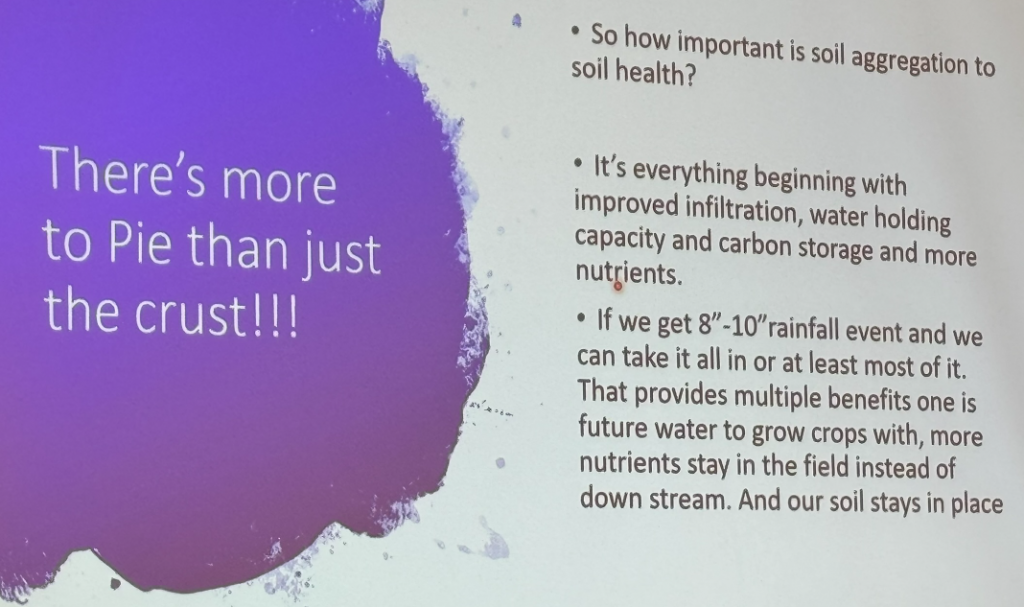
While attending the American Peanut and Education Society’s Annual Meeting, Farm Director KC Sheperd visited with Jimmy Emmons with the Dewey County Conservation District about soil health and conserving the rainwater when it does fall.
“It’s all about soil management,” he said. “Cover cropping to build aggregation in the soil so that when we do get these big rain events, we can catch most of it. We are seeing a lot of change, and there is a lot of opportunity in managing soil better.”

Using cover crops allows the ground to act more like a sponge when heavy rainfall occurs so that more water can soak in and less will run off. It also puts carbon back in the ground and helps protect against wind erosion.
As far as how to accomplish that, Emmons said that it’s about keeping the living root in the soil as long as possible by using cover crops between cash crops. He added that producers can capitalize on their Return On Investment figures by grazing livestock on the cover crops.
“The Conservation Districts are a good way to get started with soil health, and the [Natural Resources Conservation Service] is really focused on soil health practices, as well. The Noble Research Institute is doing a lot on grazing right now,” he explained. “There are a lot of resources out there to learn more about what you can do. Think outside the box and know that there are opportunities in finding other ways to do things.”
The Conservation District’s efforts to help farmers manage soil better were realized when the NRCS deemed that Dewey County’s soil could be reclassified. “It has really changed the dynamics of our soil in the past fifteen years to be where NRCS can reclassify it to a darker, higher carbon content soil,” he said. “Our water infiltration rate has gone from a half inch per hour to about 8 to 10 inches per hour.”

Increasing the water infiltration rate is not only important to soil health, but also to reduce the effects of flooding. “That’s really what we are trying to do is lessen the adverse effects of droughts and flooding; to mitigate that down to a flatter line between such extremes,” Emmons stated.


















